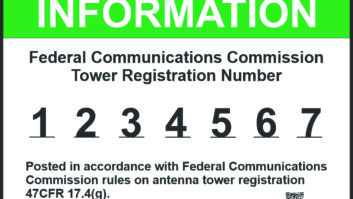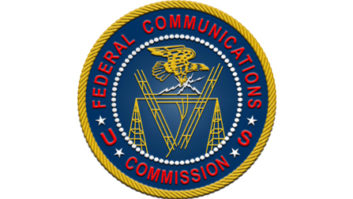Growing up in the 1970s, many of us imagined the main studio of a broadcast station was similar to what we saw in �WRKP in Cincinnati.� While stories of broadcasters� hijinks at their studios are legendary, the reality of life at the studio is often more mundane, especially when it comes to compliance with the Federal Communications Commission�s rules. So, while the FCC is moving slowly to implement a Web-based public inspection file for radio stations, other main studio rules recently became the fodder for enforcement actions.
First, the FCC imposed a $10,000 forfeiture on a noncommercial broadcaster that failed to place 13 quarterly issues/programs lists in the station�s public inspection file. As disclosed in its renewal of license application, the broadcaster acquired the station in the middle of the station�s license term and did not implement procedures to comply with the FCC�s requirement that broadcasters create and place into their public file a summary of the programs aired by the station to address community issues during the prior three months.
Before the last renewal cycle, the FCC added a certification to the renewal application to require applicants to confirm that these lists were placed in the public file in conformance with the FCC�s rules, and the broadcaster was required to disclose that it had failed to comply with this FCC requirement in its renewal application.
Seeking a reduction of the $10,000 forfeiture, the broadcaster claimed that it was under financial strain, but did not respond to repeated requests by the FCC to substantiate its claim of financial hardship. Since the broadcaster did not provide this information, the FCC stood pat with the $10,000 forfeiture.
DON�T DO THIS
The second FCC decision illustrates a textbook case of what a broadcaster and its staff should not do when the FCC comes knocking.
According to the forfeiture order, FCC agents arrived at the main studio location for a Class A television station seeking to conduct an inspection of the station. Rather than walking through the front door, though, the agents were held at bay due to a locked gate outside the main studio.
Apparently, the FCC then contacted the station and spoke with the station�s general manager, who said he�d be right out. Ten minutes later, he emerged, but said he could not permit the inspection at that time, as he had a doctor�s appointment and there was no one else at the station to facilitate the inspection. The FCC agents returned a month later and again sought to conduct an inspection, and the station manager came out to the gate, spoke with the agents, and said he�d be right back, but he never returned, and the FCC could not inspect the station. In both cases, the FCC agents reportedly attempted to contact the station�s owner, but did not receive a response.
As a result, the FCC issued a forfeiture of $89,200 for failing to permit an FCC inspection and for failing to maintain adequate staffing at the main studio. The FCC noted that its rules require immediate access to conduct on-the-spot inspections of all broadcast stations, and the station manager�s refusal to unlock the gate prevented the inspection from occurring.
The FCC also noted that access to the main studio should not have been blocked during regular business hours, and the station manager�s statement regarding the lack of other staff at the main studio indicated that the station did not have a meaningful staff presence at the main studio during regular business hours.
Finally, as with the other case, the FCC also rejected the request to reduce the forfeiture due to financial hardship. While the broadcaster apparently provided some financial information, it did not provide all of the information requested by the FCC. The FCC also took notice of a pending sale of the same station for $6.4 million in deciding not to reduce the forfeiture.
So, some quick takeaways for broadcasters from these two cases are: (i) establish and follow procedures to ensure that materials are prepared and placed in public inspection files on a timely basis; (ii) ensure that a station�s main studio is staffed properly and is accessible to the public and the FCC during regular business hours; and (iii) respond on a timely basis to the FCC when it requests additional support for requests to reduce a proposed forfeiture.
The FCC will favorably consider such requests when it is presented with supporting information, but not responding to the FCC�s request for additional information will likely lead to a denial of the reduction request.









